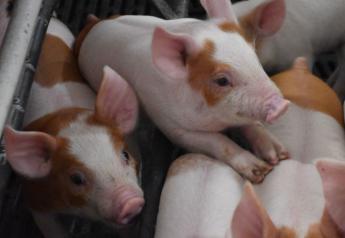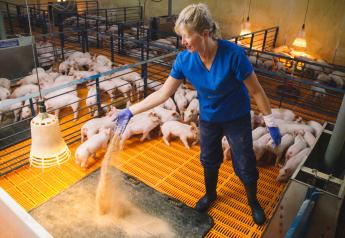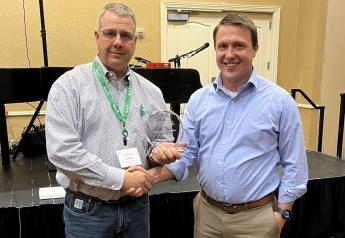U.S. Producers Still Well-Positioned Globally

Despite challenges, U.S. producers are in a good position to capitalize on efficiencies and market opportunities, says Aidan Connolly, Chief Innovation Officer & Vice President, Corporate Accounts for Alltech, Inc. He visited recently with PORK Network about the global outlook for feed and pork.
PN: Will the U.S. keep its leadership position in cost of production, despite changes in antibiotic use?
Connolly: U.S. producers are in a good place. I was concerned initially how the Veterinary Feed Directive would play out, but I’ve been pleasantly surprised at how proactive people have been in implementing the rules. Particularly, the larger producers were well prepared for the VFDs and clearly poultry and pork producers were the most proactive. I think producers are quick to take on new ideas and new technologies, and that puts the U.S. back in the leadership position. I think it will be harder for countries in Asia to do the same thing.
Given this is the way consumers globally are moving, I think it’s something U.S. producers can be very proud of and long term, it will create competitive advantages.
PN: PORK Network ran an article on the potential for algae in feed products – how is that technology progressing?
Connolly: Registration is still in progress with the FDA on the use of algae in hog feed in the U.S. at the present time, although algae did receive approval in Canada with the CFIA in December 2016. In the meantime, in the U.S. we have pursued programs that involve organic acids, yeast proteins, prebiotics and probiotics.
Several of the largest producers of antibiotic-free pigs in the U.S. are using a number of our technologies, albeit in a programmed approach. Their results have been very good and it’s clearly possible to get very good results without antibiotics.
PN: What were the biggest surprises in the most recent global feed survey conducted by Alltech?
Connolly: Keep in mind that statistics are estimates, and the numbers change day by day, but we saw an 8% increase in feed production overall. It had declined the previous year. You see people eating more pork and there is increased industrialization of the process in other countries, particularly in China. Farms are becoming more professional and less likely to produce feed on the farm.
We saw an increase in U.S. feed production, while feed production in China declined. Overall, this was a good thing.
China dominates overall feed production: at 75 million tons (242 million overall), feed production in China represents more than 25% of all feed production.
The number of sows in China is down to 38 million, which represents a massive decline. You would imagine that feed production would have decreased substantially, but the farms that are left are much more productive and professional. Food safety is a good story we’re hearing from China. Better run, more efficient pork operations in China will mean the price of pork will be more affordable. In addition, it will be easier to ensure the Chinese food supply is safe.
PN: We saw the demise of the TPP with our present administration and NAFTA is being renegotiated. What will this scenario mean to U.S. producers?
Connolly: What I’ve seen is that agriculture can adapt to most situations. It can adapt to NAFTA continuing as it is, or it can adapt to NAFTA being renegotiated. As long as we know what we’re dealing with, I think we can come up with a plan.
A rework of NAFTA could be good. Free trade in general is important to agriculture, specifically U.S. agriculture. We’ve done much better when markets have been open. If borders are open, we can compete. In general, U.S. farmers need stability and in an ideal world, relatively free trade.
I see moves to tackle other issues, driven by supermarkets and food retailers. We are responding to what we call the “Prosumer movement” – consumers who are proactive. Clearly they’ve moved beyond affordability and accessibility. Perhaps because food is so cheap, they’re looking at other parameters. From a pork production standpoint, we have to look at those other factors, whether it’s animal welfare, environment concerns, or something else. We have to be proactive and ready for those issues before they happen. Rather than waiting for something to happen to us, we have to, as much as possible, be proactively prepared for the next challenge and be knowing the answers before the questions are asked.







